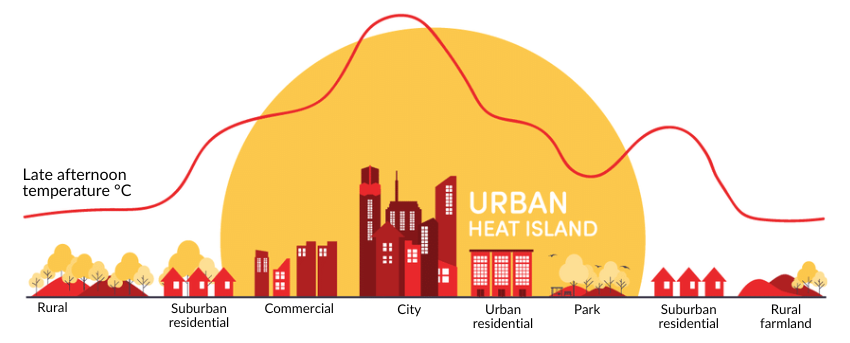Wayne State awarded grant to study interplay of urban heat islands and air pollution on agriculture
Wayne State Biological Sciences Professor Glen Hood, along with his doctoral student Sarah Black, was awarded a grant from the One Health Pilot Project Initiative to study how urban heat islands and air pollution may interact and impact urban agriculture. As a precursor to this pilot, Dr. Hood and Ms. Black completed a small study where they researched the uptake of common urban metals by agricultural plants in concert with 13 community gardens and facility management on campus.
Heat stress and pollution in plants can individually cause crops to have lower yields and decrease the nutritional value of the crops for human consumption, however, the interactive effects of these in urban farms are unknown. Heat islands in cities are sometimes used to forecast global climate change effects on urban ecology in the decades to come and air pollution is generally more intense in urban areas.
Dr. Hood’s previous research has shown the capability of plants to store high levels of contaminants (volatile organic compounds, heavy metals), and the spatial variability of pollution can be traceable using plants (often referred to as phytoscreening). Testing how heat islands and air pollution interact can provide key insights into how urban farming can be utilized as a tool to help supplement food and better regulate pollution and heat islands.

Detroit has the highest number of urban farms in North America per capita but also has high air pollution and large heat islands in several sections of the city, providing the opportunity to study these effects.
In line with the objectives of the One Health Initiative to consider environmental health through both human, plant, animal and ecological lenses, Dr. Hood and Ms. Black will partner with Detroit farms to study impacts to urban agriculture as part of considering urban health as a whole.